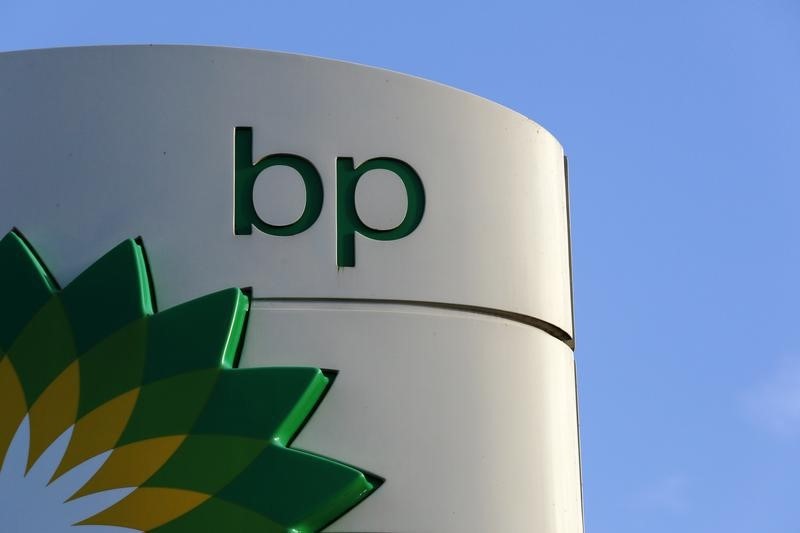By Ron Bousso and Karolin Schaps
LONDON (Reuters) - BP's (L:BP) second-quarter profit slumped by nearly two thirds from last year as it grappled with lower oil prices, a write off in Libya and a $10.8 billion charge for the 2010 crude spill in the Gulf of Mexico.
Expecting a prolonged period of lower crude prices, the British oil and gas company also cut its capital spending plans for this year for a second time to below $20 billion from $22.9 billion last year. Norwegian rival Statoil (OL:STL) announced more spending cuts too.
BP's Chief Financial Officer Brian Gilvary said he expected oil prices
BP reached an $18.7 billion agreement with the U.S. government and five states earlier this month to resolve most claims from the oil spill five years ago, the largest corporate settlement in U.S. history.
While BP had been expected to take a $10 billion hit at some point, it also agreed to pay up to $1 billion to resolve claims from some local government bodies, taking cumulative pretax charges for the Macondo rig explosion and spill that killed 11 workers to a massive $55 billion.
Profits were also hit by a $600 million exploration write off in Libya because of security issues. Overall, BP's underlying replacement cost profit, the company's definition of net income, came in at $1.3 billion, below analysts expectations of $1.64 billion and down from $3.6 billion a year earlier.
Still, BP shares rose 1.7 percent in London by 1248 GMT slightly outperforming a 1.3 percent gain for the European oil and gas sector index (SXEP).
"Cost cutting is being delivered and capex is coming in lower than previous guidance which are positives, together with the fact that Macondo is now behind us," said analysts at Bernstein, who have a "market perform" rating on the stock.
REFINING BOOST
With oil prices languishing at less than half their 2014 peak, cost savings remain key for oil companies to weather the storm.
BP has already cut about 5,000 jobs cut this year from a total of 80,000 employees at the end of 2014 and said costs linked to restructuring would now be $1.5 billion, up from $1 billion announced in December.
BP also kept investors happy by maintaining its dividend payment of 10 cents per ordinary share.
In a repeat of first-quarter trends, BP's downstream refining and trading division performed strongly while falling crude prices hurt its production business.
Downstream made $1.63 billion in replacement cost profit for BP, up 75 percent from $933 million a year earlier though below an exceptionally strong $2.08 billion in the first quarter. Oil prices averaged $60 a barrel in the second quarter, up about $5 a barrel from the first but down from $110 a year earlier.
For the third quarter, BP said it expected "reduced refining margins and lower levels of turnaround activity".
BP's global refining margin benchmark rose in the second quarter to $19.4 a barrel from $15.55 a year earlier and from $15.3 in the first quarter.
As a rule of thumb, every $1 change in refining margins equates to about $500 million in BP's pretax replacement cost operating profit, according to the company.

BP's net cash flow recovered significantly to $6.3 billion from $1.9 billion in the first quarter. The company is targeting another $2.6 billion in asset sales this year to reach its 2015 goal of $10 billion.